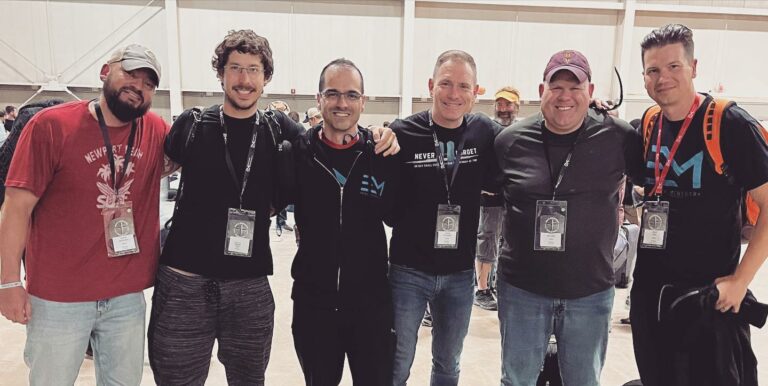In studying the importance of boundaries, psychologists once devised a study where children were asked to play in a yard with no boundaries, no fences. Then the children were later given the chance to play in a yard with boundaries, fences, on four sides. Psychologists found the children utilized more space for their play while they were in the fenced yard than they utilized in the yard without boundaries. The presence of known boundaries actually gave the children more freedom than they felt when there were no restrictions.
The principle of freedom within boundaries shows up in the tool we use for discipleship at Living Stone.
We put these boundaries in place to help people learn how to disciple someone else to become more like Jesus. They are pretty simple.
OUR DISCIPLESHIP BOUNDARIES:
One to Few Discipleship Groups. Keeping discipleship in small groups is vital. If Jesus, God in flesh, could only disciple 12 guys, most people should probably stick to 2 or 3 at most. We keep it small so we can keep it safe for people to be themselves and put down the masks they hide behind. We want to avoid making the group too big. We also want to avoid making it too small, which is why we don’t do 1 to 1 discipleship. Most of us are not up to the task of being someone’s everything. We like second opinions, because one person’s opinion could be colored by their limitations, strengths, or experiences. There is wisdom in that. And let’s be honest, most 1 to 1 discipleship opportunities quickly devolve into bootlegged counseling sessions, which no one enjoys. Not too big, not too small – we do discipleship in small groups of 3-5 people.
Time Constrained. We don’t care how long you commit to a discipling relationship, but, at Living Stone, we do ask you to give yourself an end date, be it an actual date or the completion of a task together. There are many reasons, but the most important reason is the expectation of multiplication. Every disciple of Jesus went out and discipled other people for Jesus. If you are always discipled and never discipling, you are not actually a disciple – you are just hanging out with Christians. We enter into discipleship groups with the expectation that God wants to use us to disciple others. Therefore, we need to start with the end in mind.
Reciprocal Discipleship. We believe every person has something to learn and something to pass along. Just because you are the one initiating and leading a discipleship group, that does not mean you are an expert. There is only one expert in discipleship; his name is Jesus, and you are not him. Discipleship is a reciprocal relationship, where the leader is humble enough to hear from and respond to the God-given wisdom and spiritual insight of those being led. Great disciplers look to be discipled by the people in their lives. Paul wrote about that in Romans 1:11-12. No experts allowed.
Reproducible. We want disciples to make disciples who make disciples. This means, what we do to help people learn to walk with Jesus, we want them to turn around and do with a friend who needs to walk with Jesus. What we do needs to be easily reproducible, meaning there is very little special skill needed, the work is not based on a personality or gifting, the content is readily available, and the process is simple to understand.
These are the fences we put around the yard of discipleship at Living Stone. We are really confident these boundaries will give you freedom and result in joy when you embrace Christ’s call to make disciples.
The tool we use to make disciples within these bounds is called a KORE Group. Our next post is going to answer the question, “What is a KORE Group?”


